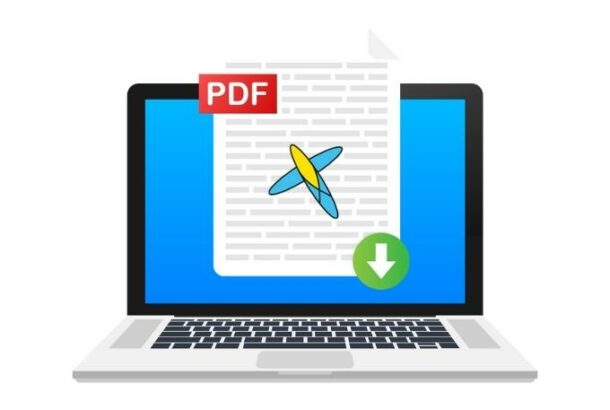
Agile Consulting Services: Your Pathway to Success with Leadership Tribe
In the rapidly evolving business landscape, adopting agile methodologies is no longer a luxury; it’s a necessity. Agile consulting is designed to guide and support businesses embracing agile practices. It’s all about enhancing team effectiveness, fostering robust communication, and nurturing flexibility to deliver customer value swiftly and efficiently.
At Leadership Tribe, we are committed to helping businesses navigate the agile waters smoothly. We offer a comprehensive array of agile consulting services.
Our Agile Services
Agile Transformation: We guide businesses in transforming their operations into an agile way of working by implementing agile methodologies and practices. It’s about embracing change, fostering innovation, and delivering value continuously. Agile transformation enables organizations to respond quickly to customer demands, optimize their processes, and create a culture of continuous improvement.
Key Benefits of Agile Transformation:
- Faster time-to-market: Agile methodologies enable teams to deliver products and services faster, giving businesses a competitive edge by staying ahead of the competition.
- Enhanced customer satisfaction: Customer satisfaction is greatly improved through the involvement of customers throughout the development process. This ensures that the final product not only meets but also exceeds their needs and expectations.
- Enhanced teamwork: Agile practices foster collaboration among team members from different functions, resulting in improved communication, increased knowledge sharing, and ultimately higher productivity.
- Adaptability to change: Being adaptable to change is crucial for businesses. Agile methodologies allow companies to effectively respond to changing market conditions, customer feedback, and emerging opportunities.
Agile Coaching: Our bespoke coaching services empower individuals and teams, helping them upgrade their agile skills and adopt best practices. It’s not merely about imparting knowledge but building a culture of continuous improvement.
- Benefits of Agile Coaching:
- Personalized guidance: Agile coaches work closely with individuals and teams to understand their unique challenges and provide tailored advice and support.
- Skill development: Agile coaching helps individuals and teams develop and enhance their agile skills, such as effective collaboration, iterative planning, and adaptive problem-solving.
- Culture transformation: Agile coaches help cultivate a mindset of continuous learning, experimentation, and adaptation, fostering a culture of innovation and agility within the organization.
- Sustainable change: Agile coaching ensures that agile practices are ingrained in the organization’s DNA, enabling long-term success and growth.
Scrum Training: We offer training on the Scrum framework – a powerful tool that allows teams to work more collaboratively and deliver better results. It’s more than just a methodology; it’s a mindset shift.
- Benefits of Scrum Training:
- Improved team productivity: Scrum provides a framework for effective project management, ensuring that teams stay focused, motivated, and accountable throughout the development process.
- Enhanced transparency: Scrum’s iterative approach and regular feedback loops foster transparency, allowing stakeholders to have clear visibility into the project’s progress and make informed decisions.
- Customer-centricity: Scrum’s emphasis on frequent customer collaboration ensures that the final product meets customer expectations and delivers maximum value.
- Continuous improvement: Scrum promotes a culture of continuous learning and adaptation, enabling teams to reflect on their performance, identify areas for improvement, and make necessary adjustments.
Journey with Us: Our Agile Consulting Process
Our approach towards agile consulting is comprehensive and tailored to meet the specific needs of each business. Here’s our tried-and-tested process:
Assessment: We start with a thorough evaluation to understand your current agile practices, culture, and capabilities. It’s like holding a mirror to your organization, showing you what’s working and needs improvement.
- Components of the Assessment:
- Agile maturity assessment: Evaluate the organization’s current level of agile adoption and identify gaps or areas for improvement.
- Cultural analysis: Assess the organization’s readiness for change and identify cultural barriers that impede the agile transformation process.
- Process evaluation: Analyze existing processes and workflows to identify bottlenecks, inefficiencies, and opportunities for optimization.
Strategy Development: Based on our assessment, we create a customized agile transformation strategy, complete with goals, a roadmap, and a timeline. It’s your game plan, your pathway to agility.
- Components of the Strategy:
- Agile goals: Clearly define the desired outcomes of the agile transformation, such as improved time-to-market, increased customer satisfaction, or enhanced team collaboration.
- Roadmap: Develop a step-by-step plan outlining the agile transformation journey’s key initiatives, milestones, and timelines.
- Change management plan: Identify potential risks and challenges and develop strategies to address them. Foster buy-in from stakeholders and ensure effective communication throughout the transformation process.
Implementation: We then collaborate with you to execute the plan, offering guidance and support throughout the transformation journey. With us at your side, you’re never alone in your journey towards agility.
- Components of the Implementation Phase:
- Agile team formation: Help organizations establish cross-functional teams and define their roles and responsibilities.
- Agile ceremonies and practices: Introduce agile rituals, such as daily stand-ups, sprint planning, and retrospectives, to foster collaboration, transparency, and continuous improvement.
- Agile tooling and infrastructure: Recommend and implement agile project management tools and technologies to streamline processes and enhance team productivity.
Training and Coaching: Our training and coaching programs are specifically designed to empower teams with the essential skills and mindset needed to maintain agility. We prioritize the growth of your team members because we firmly believe that they represent your greatest asset.
- Training Programs Offered:
- Agile Fundamentals: Learn the key principles and values of agile methodology, establishing a strong foundation for participants.
- Scrum Master Certification: Obtain Scrum Master Certification to gain the necessary knowledge and skills for effectively facilitating agile processes, coaching teams, and removing obstacles.
- Product Owner Certification: This certification trains individuals to assume the important role of product owner. As a product owner, you will be responsible for maximizing the value of the product by effectively managing the backlog and engaging stakeholders.
Measurement and Evaluation: We continuously monitor and evaluate the progress of your agile transformation against key performance indicators to ensure it’s delivering value and meeting the set goals. After all, what gets measured gets improved.
- Metrics for Agile Transformation:
- Cycle time: Measure the time it takes for a user story or feature to go from start to finish, identifying opportunities for process optimization.
- Team velocity: Track the team’s work in each sprint, providing insights into the team’s capacity and potential bottlenecks.
- Customer satisfaction: Gather customer feedback to assess their satisfaction level with the product or service delivered by the agile teams.
- Employee engagement: Measure the level of engagement and satisfaction among team members to gauge the impact of the agile transformation on employee morale and productivity.
Learn from the Best: Our Agile Success Stories
Please don’t take our word for it; let our success speak for itself. Here are some case studies of businesses we’ve helped embrace agility:
Case Study 1: Airline Organization
The airline office, a traditional organization struggling with long project cycles and low customer satisfaction, transformed into an agile powerhouse with faster delivery times and delighted customers.
- Challenge: faced difficulties adapting to changing market demands, resulting in delayed releases and dissatisfied customers.
- Our Solution: We conducted a comprehensive assessment, identified bottlenecks, and implemented agile practices such as Scrum and Kanban.
- Results: experienced a significant reduction in time-to-market, increased customer satisfaction, and improved team collaboration.
Case Study 2: Individual – Sarah Achsah
Sarah, an ambitious professional bogged down by outdated working practices, emerged as an agile champion leading their team towards success.
- Challenge: More productivity, communication gaps, and an adaptable project management approach are needed.
- Our Solution: We provided one-on-one agile coaching, focusing on developing an agile mindset, effective collaboration, and adaptive problem-solving.
- Results: Sarah became an agile leader, improving team dynamics, fostering innovation, and delivering high-quality results.
Case Study 3: Organization Sanira Engineering
Sanira, a large corporation battling inefficiency and coordination issues, became a beacon of productivity and collaboration after creating a unique framework
- Challenge: faced challenges in aligning teams, managing dependencies, and ensuring the timely delivery of projects.
- Our Solution: We introduced Scrum lean practices, including cross-functional teams, sprints, and daily stand-ups, fostering collaboration and transparency.
- Results: Sanira experienced improved team productivity, enhanced customer satisfaction, and a culture of continuous improvement.
Who We Serve
We’ve worked with businesses across various sectors, including retail, manufacturing, financial services, healthcare, and government sectors. Each industry has unique challenges, but our comprehensive approach to agile consulting ensures we can tailor our services to meet any business need.
Insights from the Frontline
Stay in the loop with the latest industry trends and insights:
- How agile practices are revolutionizing the retail industry?
- The role of Scrum in driving efficiency in manufacturing.
- The impact of agile transformation on the financial services sector.
Meet Our Agile Consultants
Our team of skilled agile consultants is what sets us apart. With their diverse backgrounds, extensive knowledge, and unwavering dedication to your success, they are the driving force behind our company. Each consultant serves as a catalyst for change, guiding you through your agile transformation with ease and ensuring a seamless journey.
Let’s Get Started
Are you ready to embark on your journey towards agility? Reach out to us today and schedule a consultation with our team of experienced consultants. We understand that in the fast-paced business world, time is crucial. The sooner you start your agile transformation, the quicker you’ll begin enjoying its benefits.
Your success is our mission. Let’s embark on this exciting journey together.
Frequently Asked Questions
Q1: What is Agile Consulting?
A: Agile Consulting is a service that provides guidance and support to businesses and individuals to help them adopt agile methodologies and practices. The goal is to improve team effectiveness, communication, and flexibility for swift and efficient delivery of customer value.
Q2: What are the key services offered by Leadership Tribe in Agile Consulting?
A: Leadership Tribe offers Agile Transformation, Agile Coaching, and Scrum Training as part of their Agile Consulting services. Each service is designed to help businesses and individuals adopt and improve their agile practices.
Q3: What does the Agile Transformation process entail?
A: The Agile Transformation process involves changing the operations of a business to an agile way of working. This includes developing and implementing agile methodologies and practices that encourage change, innovation, and continuous value delivery.
Q4: How does Leadership Tribe help businesses with Agile Transformation?
A: Leadership Tribe begins with a comprehensive assessment to understand the current state of a business’s agile practices, culture, and capabilities. They then develop a tailored strategy based on the assessment, which outlines the goals, roadmap, and timeline for the Agile Transformation. They provide guidance and support throughout the implementation of the strategy.
Q5: How does Leadership Tribe’s Agile Coaching service work?
A: Leadership Tribe provides one-on-one coaching to individuals and teams to help them develop their skills and adopt agile practices. The coaching service focuses on building a culture of continuous improvement within the group or individual being coached.
Q6: What can one expect from Leadership Tribe’s Scrum Training?
A: Leadership Tribe’s Scrum Training program provides training on the Scrum framework, which helps teams work more collaboratively and deliver better results. The training helps couples understand and implement Scrum practices effectively.
Q7: How does Leadership Tribe measure and evaluate the success of the Agile Transformation?
A: Leadership Tribe continuously monitors and evaluates the progress of the Agile Transformation against key performance indicators to ensure it’s delivering value and meeting the set goals.
Chart Demonstrating Leadership Tribe’s Agile Consulting Process
Stage
Description
Assessment
Conduct a thorough assessment to understand the current state of agile practices, culture, and capabilities.
Strategy Development
Develop a tailored strategy that outlines Agile Transformation’s goals, roadmap, and timeline.
Implementation
Collaborate with the business to implement the strategy, providing guidance and support.
Training and Coaching
Provide training and coaching to develop agile skills and sustain the Agile Transformation.
Measurement and Evaluation
Continuously monitor and evaluate the progress of the Agile Transformation to ensure it delivers value.

